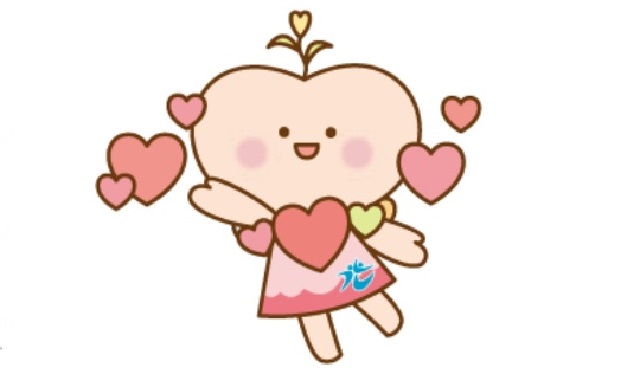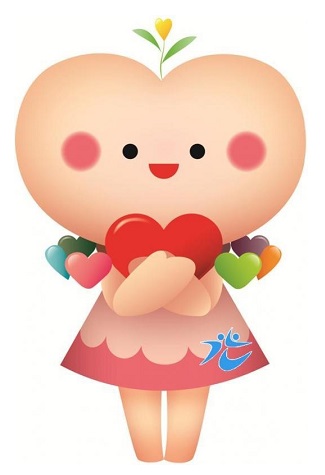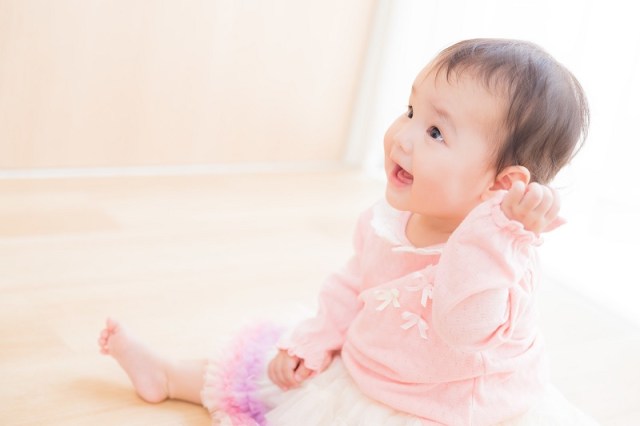Town in Japan has adorable boob mascot, makes City Boob Declaration for a touching reason

Kids in Hikari are raised under Boob Childrearing concepts.
Just about every city and region in Japan has some sort of local mascot character, and the town of Hikari, in Yamaguchi Prefecture, is no exception. So without further ado, allow us to introduce Cuto.

In keeping with Japanese character design sensibilities, Cuto is a mix of cute and quirky elements. Her name is even a pun, combining the English “cute” with kyutto, the Japanese onomatopoeia for giving something a loving squeeze, and in keeping with that affectionate atmosphere, she’s surrounded by colorful hearts.
Cuto’s head is sort of heart-shaped too, and she even has a girlish blush to her cheeks. Except, that might not actually be blush at all, because Cuto is an anthropomorphized pair of breasts.
▼ She’s even got her own dance, which involves bouncing and swaying.
「おっぱい都市宣言のまち」山口県光市が、「おっぱい都市宣言のまちイメージキャラクターきゅっと」なるゆるキャラを作ったらしい。https://t.co/XsaALGI6HZ 「みんなでおどろう!きゅっとちゃんダンス!」なるものも作られており、見てみたらすごかったw pic.twitter.com/wCaKCikdKJ
— 山口智美 (@yamtom) November 21, 2017
Cuto’s design inspiration is a little less startling if you happen to know that Hikari’s city council has issued what it calls the Oppai Toshisengen, or the City Boob Declaration. Of course, that declaration itself has a startling name, but it all makes perfect sense once you learn that it came about as a natural progression of the Oppai Ikuji/Boob Childrearing initiative, which started back in 1976…except now the brain just wants to know what the heck “Boob Childrearing” is, and it turns out it’s actually quite heartwarming.
In the early 1970s, baby formula was experiencing a rapid rise in popularity in Japan, thanks to its convenience factor. However, after looking at newer and newer medical reports, Hikarie’s city council realized that breast milk really is the healthier option for babies, and started a public awareness campaign to spread the word. In Japanese, the clinical term for breastfeeding is bonyu wo nomasu, but the colloquial phrase oppai wo nomasu, literally “let drink boob,” is also very common.
Eventually the breastfeeding awareness campaign expanded into a comprehensive movement encouraging parents to raise their children with all the love, care, and support they can, and since they’d already been talking about letting kids “drink boob,” Hikari just sort of rolled with the terminology and the movement and decided to call it Boob Childrearing.

There’s also metaphorical aspect to Boob Childrearing’s naming, as the less giggle-inducing word mune can mean either “breast” or “heart” (i.e. a person’s emotional core), and Cuto’s theme song even makes references to Dad’s and Grandpa’s boobs. The three core tenets of Boob Childrearing are “Watch,” “Hug,” and “Communicate,” with Hikari believing that paying attention to kids, showing the affection, and mentally engaging with them will help them feel loved, respected, and accepted, and that instilling such feelings in them from an early age will make them more likely to show the same compassion to others as they grew up.
All of this eventually led to the passing of the Hikari City Boob Declaration, which resolved that:
1. Through boobs, we will make Hikari a city that is kind to mothers, children, fathers, and all people.
2. We will hold our kids close to the warmth of chests, or boobs, raising them with love to be caring, healthy, shining children [Hikari means “light”or “shine” in Japanese]
3. We will help all mothers so that they can give bountiful boobs to their babies.
4. We will respect boobs, and protect and support the great mothers of our community.
The declaration was originally announced in 1995, and made once again in 2005. It hasn’t been officially renewed since, but by this point it seems like the city feels satisfied that it’s made its point that the value of boobs is eternal.
Even with Japan’s unabashed admiration of breasts, a lot of people are surprised when they first see Cuto or hear the name of the program she represents. But in a society that so often places so much emphasis on teaching kids to be responsible and hard-working, it’s honestly touching to see a community reminding parents that it’s just as important to make sure kids know that they’re loved and valued, even if it’s hard not to giggle at the name and mascot.
Sources: Hikari City (1, 2, 3), Real Live via Niconico News via Otakomu
Top image: Hikari City
Insert images: Hikari City, Pakutaso
● Want to hear about SoraNews24’s latest articles as soon as they’re published? Follow us on Facebook and Twitter!
Credit:

0 comments:
Post a Comment